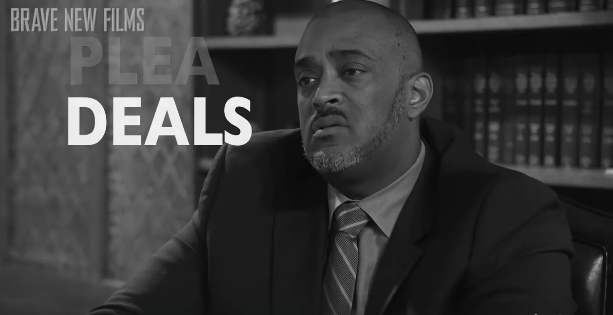A Deal with the Devil: What It Truly Costs to Make a Plea Deal
Imagine you’ve been charged with a crime and are sitting in jail awaiting your trial. Your bail is set to $5,000, leaving you with three options — if you’re rich and you pay the money up front, you can get out of jail and wait for your court date from the comfort of your home. If you’re […]

Imagine you’ve been charged with a crime and are sitting in jail awaiting your trial. Your bail is set to $5,000, leaving you with three options — if you’re rich and you pay the money up front, you can get out of jail and wait for your court date from the comfort of your home. If you’re poor and can’t afford the bail, you sit in jail and await your trial which could be months or even years away.
Then there’s the third option — take a plea deal.
A plea deal is an arrangement between the prosecutor and defendant to resolve a case without going to trial. Often, this means prosecutors have lightened caseloads and judges are better able to manage overcrowded courtrooms. It also gives defendants the opportunity to accept a less severe sentence for a less serious charge and avoid the costs that come with lengthy trials. But these so-called deals come with strings attached. A short Brave New Films video entitled “A Deal With the Devil” delves deeper into the system of plea deals:
For those sitting in jail simply because they can’t afford to pay their bail, the need for freedom grows more desperate with every passing day. In many cases, defendants who cannot afford to pay bail will be pressured into taking plea deals; instead of exercising their right to a fair trial, the defendants will accept the deal just to get out of prison or avoid the potential of a harsher sentence.
In A Deal with the Devil, Charles explains why he reluctantly took a plea deal instead of going to trial.
I think they make the bail steeper and steeper so you can’t bail out…they know most guys want to get out of there, they know it’s overcrowded, it’s diseased…so a lot of guys take plea deals.
Charles’ bail was set at $200,000, which is an incredibly steep price for most Americans. The bond alone could have cost Charles $20,000 — money he would never get back from a bail bondsman no matter the outcome of his case. In the face of that excessive amount of money, taking a plea deal can seem like the only possible option for defendants, especially when told by prosecutors that the alternative — a guilty ruling at trial — could result in even more devastating outcomes.
Criminal defense attorney Michael J. Curls advises his clients that a guilty plea remains on a person’s record and can follow people around for the rest of their lives. “Plea deals always come back to bite,” he explains. “You’re not going to get loans, can’t vote, you can’t even get on a game show with a felony.” In fact, people convicted of felonies commonly lose more than just voting rights or ability to borrow money — they can lose educational, parental, travel, housing, and employment rights as well.
Curls knows that money bail turns plea deals into a ‘deal with the devil’ in a system that disproportionately impacts low-income people, especially those in communities of color.
“[In the case that] a person has committed a crime and gets an opportunity to accept responsibility for that crime without going to trial, incurring more time and expense, and possibly being exposed to a harsher sentence, a plea deal can be a good thing,” explains Curls. “The problem is when a plea deal is a byproduct of someone just wanting to get out of jail… I can either stay in custody for another 4 months and fight the case with no guarantee that I’ll win, or I could get out in one month and try to get on with my life.”
For many people, the high cost of taking a plea deal is worth getting out of jail and going home, whether or not they are guilty. Because of the pressures put on a person by impossible bail amounts, plea deals can end up subverting a person’s right to a fair trial and presumption of innocence. It’s clear that the money bail system exacerbates this problem and only comprehensive reform at all levels of the criminal justice system can end this injustice.
To learn more about plea deals and how they affect vulnerable Americans, watch “A Deal with the Devil”[1] and share it with your friends.
(Are you an educator, activist, or organizer? Do you care deeply about social justice issues and education? Join Brave New Films’ movement to end money bail once and for all by visiting www.bravenewfilms.org/bail_trap to register for a free screening and education guide for your classroom, faith organization, or community!)
